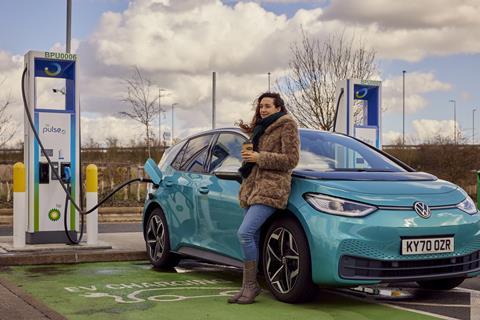
The charging infrastructure rollout is woefully behind where it needs to be, and will put motorists off switching to electric vehicles, according to John Wilmot, CEO of car leasing comparison website LeaseLoco.

His comments followed last week’s release of the latest UK new car sales figures from the SMMT, which showed that battery electric vehicle (BEV) uptake grew by less than the overall market for the first time since the pandemic, meaning October was the first month to see BEV market share fall year-on-year since May 2021, primarily attributable to supply challenges.
Deliveries of hybrid electric vehicles (HEVs), meanwhile, rocketed 81.7% to account for more than one in 10 new cars, as supply was prioritised for a raft of popular new models. Overall, electrified vehicles accounted for one in three registrations, while more than a fifth (21.5%) came with a plug.
But Wilmot stressed: “The stark reality is, that as the UK transitions to electric vehicles, the charging infrastructure rollout is woefully behind where it needs to be on the path to net zero.
“The latest local authority data on public EV charger infrastructure shows that 61% of Local Authorities (LAs) - 228 of 375 - are failing to rollout public electric car chargers fast enough to meet the government’s 300,000 target.
“More than a quarter (26%) of LAs expanded their public charger network by less than 10% over the past 12 months, according to our research.
“The government has a colossal task on its hands if it hopes to hit the target by 2030, and create a charging infrastructure able to cope with the growth in EV ownership over the next decade.
“Although home charging will have a pivotal role to play, there will still be a huge reliance on the public charging network. And the ramifications on local economies of a substandard charging infrastructure could be severe.
“Also, the public isn’t stupid. They won’t be convinced to early switch to electric if they don’t believe the charging infrastructure can cope with demand. And the government will have scored a huge own goal by declaring such an ambitious target and then coming up woefully short of it.”
His commented echoes those of SMMT chief executive Mike Hawes who said a long-term fiscal commitment to zero-emission motoring would do much to stimulate investment and demand in electric vehicles: ”EV drivers’ top complaints are, invariably, cost and charging anxiety so reducing VAT on public charging to bring it into line with home charging would level the playing field for drivers unable to install a home chargepoint.
”…EV growth looks set to continue but, to achieve our shared net zero goals, that growth must accelerate and consumers given every reason to invest. This means giving them the economic stability and confidence to make the switch, safe in the knowledge they will be able to charge – and charge affordably – when needed. The models are there, with more still to come; so must the public chargepoints.”

































No comments yet